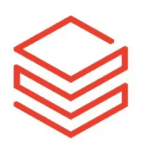Big Data analytics requirements have forced a huge shift in data storage paradigms, from traditional block- and file-based storage networks to more scalable models like object storage, scale-out NAS and data lakes.
Big Data Requires Big Storage
Big Data is an all-encompassing term that refers to large and complex sets of unstructured, semi-structured, and structured data that cannot be processed by traditional data-processing software. These datasets are generated from numerous resources, such as large-scale e-commerce, medical records, image and video archives, and purchase transaction records.
Big Data analysis may reveal associations, trends, and patterns, especially relating to human interactions and behavior. Numerous specially-designed hardware and software tools are available today for Big Data analysis.
The extraction of meaningful insights from Big Data may aid in making critical business growth decisions, such as exploring new, underexplored market themes or the betterment of an existing product or service. Hence, much information technology (IT) investment is going towards maintaining and managing Big Data.
In fact, the Big Data industry is projected to be worth a hefty $77 billion by 2023. To make sense of Big Data, though, the first step is acquiring a Big Data storage tool.
Also read: Best Big Data Tools & Software for Analytics
Why You Need a Big Data Storage Tool
More than 150 zettabytes of data will require analysis by 2025. An organization can only harness the power of Big Data if they have a secure storage solution that can massively scale to meet the Big Data challenge. Big Data storage tools collect and manage Big Data and enable real-time data analysis.
Generally, Big Data storage architecture falls into the following categories:
- Geographically distributed server nodes such as the Apache Hadoop model
- Database frameworks such as not only SQL (NoSQL)
- Scale-out network-attached storage (NAS)
- Storage area networks (SAN)
- Solid-state drive (SSD) arrays
- Object-based storage
- Data lakes (raw data storage)
- Data warehouses (processed data storage)
Also read: Best Data Warehouse Software & Tools
Best Big Data Storage Tools
Here, in our analysis and review, are the best Big Data storage tools that are on the market today.
Apache Hadoop
Apache Hadoop is an open-source software library that enables the distributed processing of large and complex datasets across clusters of computers (called nodes) using easy programming models. The framework is designed to scale to thousands of nodes, each offering local computation and storage.
Key Differentiators
- Apache Hadoop is designed to detect and take care of failures at the application layer, thereby delivering a highly available service on top of computer clusters, each of which may be vulnerable to failures.
- Apache Hadoop includes these modules: Hadoop Common, Hadoop Distributed File System (HDFS), Hadoop Yet Another Resource Negotiator (YARN), and Hadoop MapReduce.
- Hadoop Common refers to the common utilities and libraries that support the other Hadoop modules.
- HDFS provides high-throughput access to large and complex datasets running on commodity hardware. HDFS is used to scale a single node to thousands of nodes.
- The goals of HDFS include quick recovery from hardware failures, access to streaming data, accommodation of large and complex datasets, and portability.
- Hadoop YARN is a parallel processing framework for job scheduling/monitoring and cluster resource management.
- Hadoop MapReduce is a YARN-based system for the parallel processing of large and complex datasets.
- Hadoop-related projects at Apache include ZooKeeper, Tez, Submarine, Spark, Pig, Ozone, Mahout, Hive, HBase, Chukwa, Cassandra, Avro, and Ambari.
Pricing: Apache Hadoop is available for free.
Apache HBase
Apache HBase is an open-source, distributed, versioned, NoSQL database that is modeled after Google’s Bigtable. It provides capabilities similar to Bigtable on top of Apache Hadoop and HDFS.
Key Differentiators
- The goal of Apache HBase is to host large and complex tables (billions of rows and millions of columns) atop clusters of commodity hardware.
- HBase offers both modular and linear scalability.
- HBase provides strictly uniform reads and writes.
- Shards of tables are configurable and automatic.
- Failure support between RegionServers is automatic.
- A simple-to-use Java application programming interface (API) is available for client access.
- BlockCache and Bloom Filters are available for real-time querying.
- Server-side filters facilitate query predicate pushdown.
- Apache Thrift software framework and a RESTful web service supports Protobuf, eXtensible Markup Language (XML), and binary data encoding options.
- Extensible JRuby-based (JIRB) shell support is available.
Pricing: Apache HBase is available for free.
NetApp Scale-out NAS
NetApp is a pioneer in the NAS industry. NetApp Scale-out NAS simplifies data management and helps you keep pace with growth while keeping costs down. The Big Data tool hands you seamless scalability, proven efficiency, and non-disruptive operations within a unified architecture.
Key Differentiators
- NetApp Scale-out NAS is powered by NetApp ONTAP enterprise data management software.
- Users can automatically tier cold data to private or public cloud with StorageGrid to maximize capacity on performance tiers.
- Cloud tier and performance can be combined into one data pool, thereby reducing the total cost of ownership (TCO).
- Data can be accessed at the edge and across multiple data centers and all major public clouds with integrated caching capabilities.
- Active IQ uses artificial intelligence for IT operations (AIOps) to automate the proactive optimization and care of NetApp environments.
- Users can dedupe and compress storage without performance impact.
- With built-in data security, users can safeguard sensitive customer and company information.
- Users can encrypt data-in-transit and data at the volume level as well as securely purge files.
Pricing: Reach out to sales for product pricing.
Snowflake for Data Lake Analytics
Snowflake’s cross-cloud platform provides quick, reliable, and secure access to all your data. Snowflake for Data Lake Analytics combines unstructured, semi-structured, and structured data of any format; provides rapid and reliable processing and querying; and enables secure collaboration.
Here is how Snowflake for Data Lake Analytics enables your data lake:
Key Differentiators
- Large and complex sets of data can be stored in Snowflake-managed storage with encryption at rest and in transit, automatic micro-partitioning, and efficient compression.
- You can support numerous workloads on unstructured, semi-structured, and structured data with your language of choice (Scala, Python, or Java), on a single platform.
- With Snowflake’s elastic processing engine, pipelines can be run for low maintenance, cost savings, and reliable performance.
- Pipeline development can be streamlined using your language of choice (SQL, Scala, Python, or Java) with Snowpark–no additional copies of your data, service, or clusters to manage.
- An unlimited number of concurrent queries and users can be supported with nearly unlimited, dedicated compute resources.
- With built-in Access History, you can know who is accessing what data.
- Snowflake enables collaboration among stakeholders and enriches your data lake with secure, live data sharing.
- With scalable, row-based access policies, you can enforce row and column-level security across clouds.
Pricing: A 30-day free trial includes $400 worth of free usage. Reach out to the Snowflake sales team for product pricing information.
Also read: 8 Top Data Startups
Databricks Lakehouse Platform
Databricks Lakehouse Platform combines the best of data lakes and data warehouses. The Big Data storage tool delivers the performance, strong governance, and reliability of data warehouses as well as the machine learning (ML) support, flexibility, and openness of data lakes.
Key Differentiators
- Databricks Lakehouse Platform is from the original creators of Koalas, MLflow, Delta Lake, and Apache Spark.
- You can unify your data warehousing and AI use cases on a single platform.
- The unified approach eliminates the silos that traditionally separate ML, data science, business intelligence (BI), and analytics.
- The Big Data tool is built on open-source and open standards to maximize flexibility.
- Databricks Lakehouse Platform’s common approach to data governance, security, and management helps you innovate quicker and operate more efficiently.
- Databricks Lakehouse Platform has over 450 partners across the data landscape, including MongoDB, Tableau, RStudio, and Qlik.
- The Big Data solution provides an environment for data teams to build solutions together.
Pricing: Fill out a simple form to enjoy a 14-day full trial. Contact the Databricks sales team for product pricing details.
Choosing a Big Data Storage Tool
The Big Data industry is ever-growing and powers numerous business-oriented applications. Tech giants such as Google and Facebook, for example, harness the potential of Big Data to serve targeted advertising and content to users. The first step to analyzing Big Data is securely storing it.We’ve covered some of the biggest solutions in this article, but others are also worth a look. Object storage is something every serious enterprise should be familiar with by now, and it’s also available in the cloud as a service from Amazon, Google, IBM and others. Do your own research and find a Big Data storage solution that best meets the needs of your organization.
Read next: Enterprise Storage Trends to Watch in 2022







